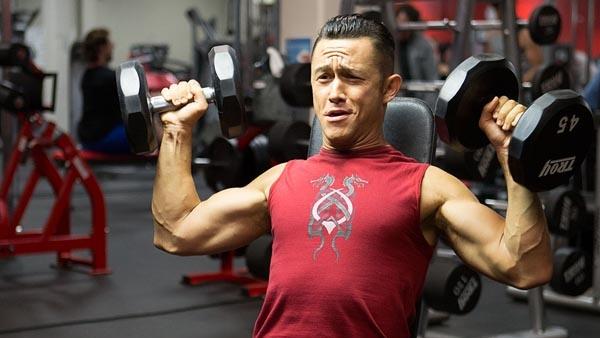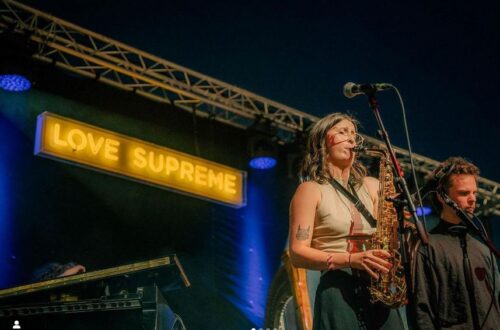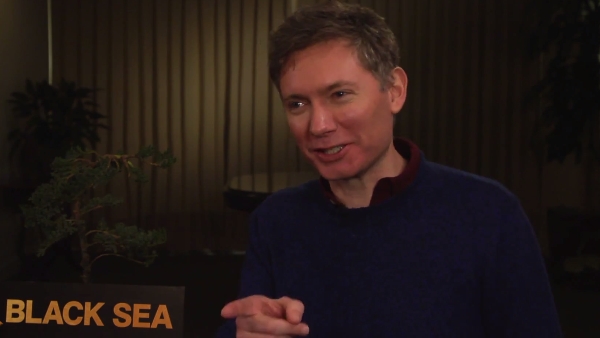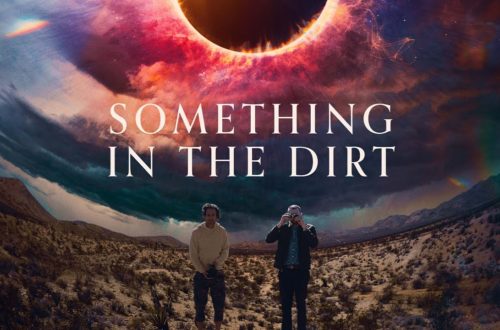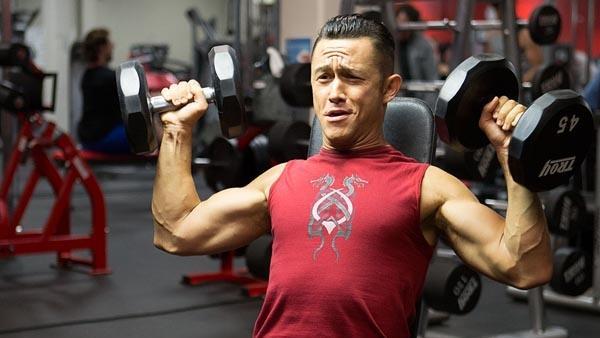
After returning to acting following his post-3rd Rock From the Sun hiatus, Joseph Gordon-Levitt’s star remains on the rise, and yet it’s impossible to argue that he’s still growing up. Part of that stems from the smart choices he’s made following his second coming – he’s picked a blend of independent projects and more commercially available films, ranging from Brick to Inception – but more than anything, it’s because of Don Jon, his latest production and his first stint directing and writing on a feature-length movie.
Anchoring his film in New Jersey, Gordon-Levitt steps in front of the camera to bring his hero, a modern take on that classical literary libertine, Don Juan, to meatheaded life. Jon Martello has everything he thinks he needs – a sweet pad, a sweet ride, game enough to bring home any woman he wants every night of the week – but he’s also crippled by the fantasy offered by pornography, a character flaw that keeps him from developing any meaningful romantic relationships in his life until he meets Barbara Sugarman (Scarlett Johansson), and things start to change.
Whether that change is for the better or not, well, that’s another story entirely, and you’ll have to watch the film to see for yourself. For my own part, I had the opportunity to sit down at a round table with Joseph and a handful of other Boston journalists to pick his brain over Don Jon, and the conversation ran the gamut of both staple junket topics and also abstractions about the film’s themes.
Fittingly enough, the conversation started off with a note about the outside influences that shaped Don Jon to begin with. You can tell a lot about a filmmaker based on the sources that inform his artistic outlook, and Gordon-Levitt’s no exception:
One I think that’s particularly good is Shampoo, and really all the Ashby movies: Harry and Maude or Being There. He does the kind of comedy that I love so much. It’s not just goofy comedy. I love a good, funny, goofy comedy as much as anybody – that’s what we did on 3rd Rock all the time – but Ashby does these movies where the people feel like people, but it’s also still funny and the comedy sort of comes from the fact that you’ve felt stuff like that before. It’s an emotional sort of humor.
So that was really inspirational. Also The Graduate and one he did called Carnal Knowledge, with a really good early Jack Nicholson performance. Eternal Sunshine of the Spotless Mind – that’s one of my favorites – and (500) Days of Summer too is one I really liked and I’m proud of. It was also good reference for what kind of movie that I wanted to make: something that was very funny and entertaining, but also had something to say and felt genuine.
Speaking to two of Don Jon‘s most recognizable traits – its location and cultural trappings – Joseph talked about the reasoning behind his decisions to shoot his film in Jersey, and also made sure that there’s no conflation being made between the setting and his character’s proclivities toward porn:
About his neighborhood…I see where he grew up as just sort of very much average America. It’s very different. Jersey Shore is about people in mansions and BMW’s and stuff. I picked New Jersey, because it’s a suburb. I grew up in the suburbs of LA. New Jersey more of like a suburb of New York. I didn’t want to set the movie where a lot of romantic comedies are set, in very affluent areas, Manhattan or London or things like that. I just wanted it to be sort of middle-income United States.
As far as whether Jon has a disorder, what I was going for with Jon is that this is a guy for whom everything in his life is a thing. Is an object on the shelf. He doesn’t connect with anything. He doesn’t engage with anybody. I think him watching pornography is a symbol for a disorder, but he treats his friends the same way. He treats his friends the same way. It’s a one way street. With this guy, everything in his life is a one way street. You can see it in all of the facets in his life.
Hopefully by the end of the movie you can see him beginning him taking some of the first steps to breaking out of that mold.
He also had a thing or two (or three) to say about his cast, specifically Johansson, and supporting cast members Tony Danza and Brie Larson, who respectively play Jon’s father and sister. On Scarlett:
I was always picturing Scarlett when I was writing her character, from the very beginning. She’s a really tremendous actress and having seen Lost in Translation and Vicky Christina Barcelona or The Man Who Wasn’t There. She was also really great on SNL. Not every actor, especially movie actors, can pull off Saturday Night Live, and she was great at it. And I think that she was great for this part, because of how she’s seen in our culture. This is a woman who is a very smart person, a very talented artist, and yet a lot of what our culture views her as is just her looks. Yes, she’s very good-looking, but there’s so much more to her than that, and I thought that sort of cultural context would be really great for this character.
I also think that’s a big part of why she was intrigued by this material and keen to play the part.
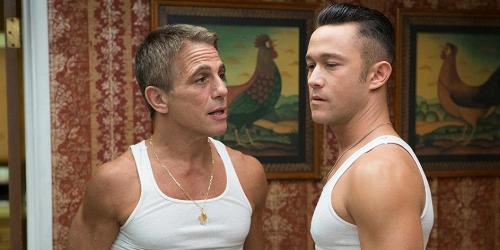
On Tony:
I honestly hadn’t thought of who was going to play that part, but as soon as I started to think about it, he was the first guy I thought of, and he’s so good in it, right? What’s funny about him is that naturally, he’s such a sweetheart. He’s just the nicest most likeable guy, and Jon Sr. in this movie is a little bit of a dick. He’s misogynistic and lecherous, and he yells at his family. So I was always having to push Tony. That was my regular reminder to Tony, “Nah, man, I still like you too much. You have be to worse.”
On Brie:
She does such a good job. That’s another actor in the movie that brought so much more to the character than what was in the writing. I like the character as she was written, but a lesser actress could have made her boring and I think she’s always interesting even in the fact that she’s not talking. She’s always contributing a lot. I’m always trying to cut my lines. Lines are overrated. If you can tell the story without saying anything, it’s not necessarily more powerful, but I often try to do it that way.
Gordon-Levitt plays the central figure of Don Jon, of course, so his collaborations with Danza, Johansson, and Larson – not to mention Julianne Moore, playing Esther, the other major female influence in his life – have an extra layer to them in light of his dual-roles as star and director on the set. Turns out that pulling double duty like that had some unexpected benefits for him during production:
On average, on an acting job, you get to spend a few months with the material before you shoot. If you spend a year, that’s very extreme. This material, I’d been thinking about it for several years before shooting, and I think that makes a huge difference, getting to have the character in your head for that amount of time. By the time it was time to shoot, I had been doing it for so long, I could turn the voice on and off without even thinking about it. That really helps.
For the English lit students in all of us – especially those of us who made the tactical blunder of majoring in the subject in college – there may be a question as to how Don Juan’s legend plays into Gordon-Levitt’s text, especially since most stories involving the licentious anti-hero tend to err on the side of tragedy. But Joseph’s a glass-half-full kind of guy, and he sees a silver lining in his modern day interpretation of the character:
That was an important choice because in your traditional Don Juan story, the main character has his shortcomings, suffers the consequences, and is destroyed. I like movies that have a balance of darkness and light, and I’m sort of an optimist generally. So I wanted to tell a story of a guy who isn’t destroyed, who certainly has these shortcomings, but begins to grow up, begins to change. I like to think that even Don Juan can change. That’s, I guess the optimist in me. I always wrote it as sort of a coming of age story.
Gordon-Levitt has a deep-rooted interest in routines, something that ultimately bled over into how he approached creating Don Jon:
That’s a big part of this film; the whole structure is cyclical. It’s all about a guy’s patterns and habits, the repetition and deviation. I think that’s a huge part of life. There are these things that I do everyday or once a week or every year or whatever it is. Why do I do them? Yes, there’s merit to just, “Well I do it, because I’ve done it before”, but there’s gotta be more of a reason to it than that, I think. So it’s always worthwhile to ask yourself, “why am I doing this?”
If you’ve had this film on your radar for a while, you’re probably well aware that at one point the title was actually Don Jon’s Addiction. Joseph as an answer to the obvious questions regarding the name change:
It’s just shorter, easier to say, easier to remember. That’s important. I found in general, I would say to people, “Don Jon’s Addiction” and they would say “Don what?” You don’t want that.
But also, the word “addiction”, I wrote that in there originally as a sort of symbol, a metaphor for what we’re talking about. A guy who approaches his life as a routine and doesn’t ask questions and is sort of stuck in a cycle. But we played it at festivals and stuff, and people kept saying “Oh, so this is a movie about porn addiction?” Porn, porn, porn, porn, porn, porn, porn. No, that wasn’t really the point I was trying to tell with this story.
That was another reason, but mostly it was because it was shorter.
Even though Don Jon isn’t really about sex or porn addiction for Gordon-Levitt, there’s no getting around the fact that Jon spends an inordinate amount of time alone with his computer and a box of tissues, and it’s natural to wonder whether or not the repeated depictions of those, shall we say, private moments pose a problem for the actor’s image or could be potentially problematic for its audience. For Joseph, those concerns aren’t actually that big of a deal:
There aren’t any compromising shots, actually – all the shots are close ups. There’s nothing graphic or explicit about it. I think maybe it feels that way, because it’s about a feeling, but you don’t see anything, the movie’s rated R. It’s a movie, it tells a story. I think movies are good when there’s something vulnerable about them, when they are getting at something. Those things that are going on beneath the surface. If I was going to write and direct a movie and put all this work into it, I didn’t want to make something kind of normal.
I didn’t want people to say “That was good, that was really good you know. You’re good.” That didn’t interest me. I wanted to take some risks and do something bold, and sure, I know that not a hundred percent of the people are going to like this movie, but I think the people who do like it are going to really, really like it a lot.
All of my favorite movies are divisive like that. Whether it’s No Country For Old Men, Punch Drunk Love or Django Unchained or whatever. Some people love those movies, some people do not at all love those movies, but I feel strongly about them. They’re not just something like, “Oh, fine, that was good.” They’re taking risks, and that’s what I wanted.
I don’t really worry about image so much. I believe in the movie. I think it’s telling a good story. I think it’s a positive thing. I think it’s on the one hand, entertaining, on the other hand, it’s a healthy story to be told. I’m proud, I stand behind it.
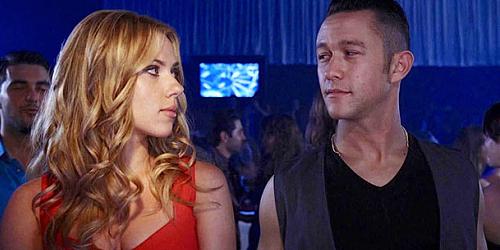
Not to drive the point home too bluntly, but Gordon-Levitt’s a multi-talented man, proven not just by the variety of movies he’s appeared in in the last near-decade, not just by his new found interest in making movies himself, but also by the fact that he owns online collaborative production company hitRECord, which he founded in 2005 with his brother (and which, like Joseph, happens to be versatile in terms of output). Here, he speaks to how his experiences with hitRECord informed his vision as a filmmaker:
I would not nearly have been nearly as well equipped to do this had I not been directing all sorts of collaborative projects for years on hitRECord. In a way, it’s not dissimilar. HitRECord is kind of modeled after a movie set where there’s lots of people contributing and I’m directing. In a traditional movie like Don Jon or whatever else, The Dark Knight Rises, there’s a director and then there’s lots of other artists contributing their work. That’s what happens on hitRECord, the difference is that anybody can contribute, anyone can come to the website and contribute their work as opposed to a traditional movie you hire people first and then they contribute.
As far as what I’m doing as director, you have to have a vision, understand what you want, but also be open to new ideas that are different than what you thought it was gonna be, find that balance, stay the course and keep going until it’s done. I’ve done that time and time again on hitRECord whether it’s short films we’ve made or the records we put out or the books we published. I think that experience was a huge help in directing Don Jon and I hope that one day that we’ll make a full on feature film with the hitRECord collaborative process. I thought it was important to do a film in the old-fashioned way first before tackling that with the community. Hopefully we’ll do that one day, but right now we’re working on this TV show. And that’s taking up plenty of our time.
But that opens up an additional query: would he be interested in making more movies like Don Jon in the future?
I would love to direct more movies in the future, whether it’s kind of the old-fashioned way like Don Jon, or in a more open, collaborative way, because Don Jon‘s plenty collaborative – there’s a ton of artists that worked on it. And I hope I get to do both.
Good news for all the film purists out there: Don Jon happens to have been shot on 35mm rather than digital. That’s admirable in and of itself, especially with the mounting pressure to abandon cinema’s cornerstone artistic medium for the technology of the day, but he had more reason to stick with 35mm than simple loyalty to the craft:
So that Chris (Nolan) wouldn’t be mad at me.
That’s a joke! He would have been disappointed if I hadn’t. I think you can still tell the difference; I think it looks different. It’s getting less and less different. I mean, the new digital cameras look fantastic, but I still think film looks different. It was my first one, and who knows how many more I’ll get to do on 35, so I definitely wanted to take that chance while I had it. But also it’s more practical for a movie of this budget level. If you’re doing a super low-budget movie and you’re shooting on 5Ds or something on a DSLR, that’s one thing, but if you’re doing a movie like this with a whole crew and everything, film is more reliable, it takes less people, it takes less equipment. It’s better right now for that.
Also, to me there’s just something that happens when you roll film on a set. People have a respect that’s important, especially for actors. When you’re just rolling all day long on digital and it doesn’t matter if you’re rolling or not rolling or cut because who cares. There’s a moment that happens when you roll film, they say ‘Rolling’ and you’re actually rolling and they say ‘Speed,’ ‘Marker’ and ‘Action’ and you go. When you’re shooting digital, you don’t cut just as often as you cut because who cares, stay rolling and then action. You don’t have that ramp up into it, that ritual that’s important to me. That’s another reason I prefer film.
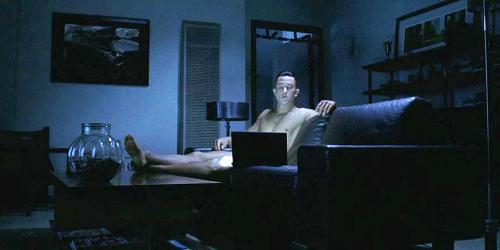
Finally, there’s the matter of Jon’s argument that the staid, formulaic, saccharine romantic comedies Barbara eats up so unquestioningly – and which Don Jon is itself a variation on – aren’t any different than the porno clips he watches. Does he have a point, though? Is there merit to the way he equates the two entities?
What’s important to me is that both Jon and Barbara are creating their fantasies based on what they see on the screen, and their comparing their realities to those fantasies. They’re putting expectations, a check list that they’ve learned. Like, in every porn video, I get to see this, this, this, this and this, so when I have sex with a real girl, I want those things. Same with Barbara. Every romantic comedy she sees, the relationship has this, this, this and this. So she wants the same things out of her real life, but real life isn’t that simple. There’s a lot more nuance and detail to it. That’s a beautiful thing, and you’ll miss it if you’re too busy comparing your real life to fantasies that you see on the screen.
That’s not to say that movies are bad. It depends on how you watch movies. If you watch movies understanding what they are. That they’re a work of art that someone made, and they’re not real life, that’s one thing. Also, it depends on what movies you’re watching. Some movies do a really good job of showing the nuance and the detail and the mystery of what life is like. Other movies or porn videos or commercials or whatever else are more simplistic. They just kind of reduce everything to stereotypes. I do think we all have a tendency, whether it’s the media we consume or what we learn at churches or around family, we have a tendency to want to reduce our lives to something simple, because it seems easier. But it’s more rewarding to look into it further.
(Thanks to Allied for putting the interview together, and thanks to Joseph for taking time out of his schedule to sit down with us.)
